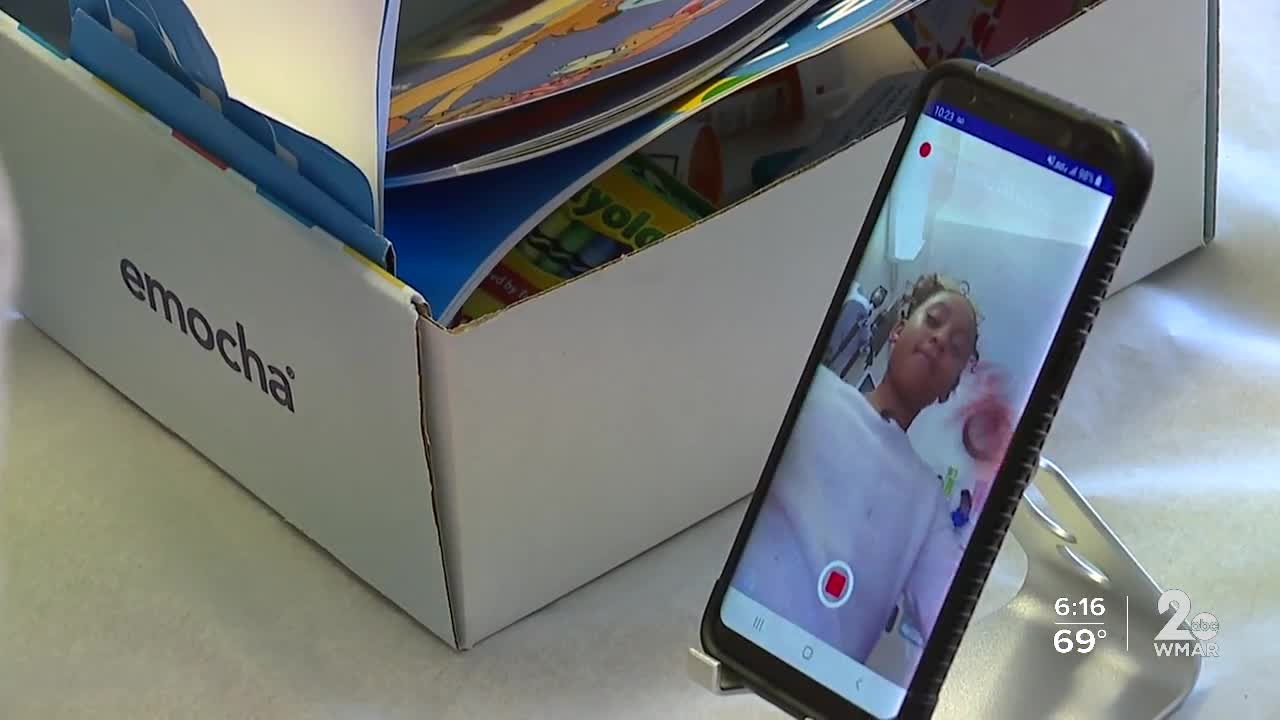BALTIMORE — Childhood asthma is a big problem in Baltimore. The city has twice the national average of kids with asthma, according to the Baltimore City Health Department.
Baltimore's hospitalization rates are the highest in Maryland and one of the highest in the nation.
Now, Lifebridge Health, a Baltimore non-profit health system, is partnering with Emocha, a company hoping to help with the asthma problem in Baltimore. They launched a pilot program with 17 children who have asthma to make sure they're taking their medication properly.
"The biggest challenge we have is having families to use their controller medicines regularly and correctly, with kids you cant just put the inhaler in their mouth it doesn’t work. You spray it, it just goes into the mouth, it doesn’t go into the lungs," said Dr. Scott Krugman, the Vice Chair for the Department of Pediatrics at the Herman & Walter Samuelson Children's Hospital at Sinai.
So far, Dr. Krugman said the pilot program has showed a third of patients are using their inhaler incorrectly.
Emocha created a phone app to help those patients. The child will record themselves using their inhaler and the video goes straight to a nurse.
That nurse can then evaluate the video and give feedback if necessary.
"Think of it as a daily medication appointment its just happening at different times. The child is doing their part of the appointment. Nurses are reviewing that a little later to help the child take the medication properly," said Sebastian Seiguer, Emocha's CEO.
They have a history with helping patients but this is the first time working with asthma patients.
Seiguer said, "we already help patients who’ve received a transplant, diabetes, patients with tuberculosis, HIV. This is our first into inhalers which also opens up to patients with COPD."
One of the patients, 8-year-old Elajah Smithwick-Bey, said using this program has helped her breath better.
She said, "since I've been using it it changes my breathing because I don’t forget and I take it more and it helps my breathing."
She takes her medicine and uses the app all by herself. She takes the medicine twice a day. She opens the app, answers and few questions and then takes her medicine.
First you have to shake the inhaler, then inhale and hold your breath for 10-20 seconds and do it all again. Once that's done, she'll send the video and rinse her mouth with water.
"It's really helpful when they send you feedback so you can know if you're doing it right or wrong so you can get your proper medication," said Elajah.
Before using the app, her older sister said she was relying on her rescue inhaler a little too much.
"The rescue inhaler is if she starts wheezing she cant breathe, short of breath, its hard to breathe, her chest hurts anything like that," said Elisha Smithwick-Bey, Elajah's sister.
The rescue inhaler helps open in the airway in an emergency situation. The controller medication is an anti-inflammatory steroid which focuses on prevention.
Now that Elajah is taking her medication properly, she's rarely had to use her rescue inhaler.
Emocha hopes to expand this program nationwide to help children with asthma all over.




